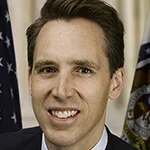 |
| Jane Genova |
Media, public relations, and marketing are glam fields. Therefore it seems unthinkable that there would be a migration out of those high-octane niches into other careers. But that could be a trend in 2023 and beyond.
Jobs Not Coming Back, Chatbots
In media, of course, there have been the realities of the massive reductions-in-force. But what should be getting more attention is this: As NPR's Eric Deggans sums it up, the whole media sector is in transition. That means that everything from the strategies to the models to the actual operations could be restructured to the point where the old jobs will not be coming back.
In the past, those axed from media jobs could and did retrain for careers in public relations and marketing. Now, technology could singlehandedly cut off big chunks of that traditional option.
Artificial intelligence chatbots, which generate communications strategies/content free and in a user-friendly way, are already producing quality strategies and content. Since Open AI’s launch of ChatGPT on November 30, 2022, there have been endless illustrations of that. For instance, among the brand slogans which popped out for a former client had been Powering success on Wall Street: Paul Weiss, elite legal counsel. I wondered if I could have done better. For the chairperson of Paul Weiss, Brad Karp, the content was more than adequate for a firm’s website or media relations.
Good Reason for Magical Thinking
The red flags are there for considering career change. But the odds are they will be ignored. Primarily that is because, as the Holmes-Rahe Life Stress Inventory documents, career change triggers extreme stress.
Transition is always scary. But this one is especially so because it involves professional identity, networks, skills, knowledge base, earnings and uncertainty as to outcomes. Although increasingly common now, it has no official definition yet. Flexjobs provides this simple way into the concept:
“ … when you use the skills you gained from one profession and apply them to a completely new career.”
Postings/comments on professional anonymous networks such as Reddit Career Guidance bear witness to how tough career change is and that it does not always pan out. According to LinkedIn there is only a 0.008 percent chance you will be perfectly happy with the results of your efforts.
The 4 Success Factors
As an intuitive career coach I have observed 4 features embedded in successful transitions. Ronald Reagan, who navigated from media to the US Presidency, seemed to showcase them.
Identifying Transferables. Those may be as basic as soft skills. The media sales representative considers using high emotional intelligence for customer service in pharma. The television producer investigates project management in construction. It is okay to be unsure about what the specific Next could be. What is important is being aware of what can be carried over from the first career or careers and is marketable.
Planning. This transition is a complex process and should be approached carefully and slowly. A disappointing job or a toxic boss is not a good-enough reason for a career-change decision.
A major piece of the preparation is financial. Leaving a source of steady income from a proven-out career path to the uncertainties of a new one can trigger financial catastrophe. A reserve is necessary. Without that a career change could be downright reckless. In addition there is the possibility of lower compensation, at least initially, for the Next. Sure, some rant they will accept less money for a less-pressured career path but when that does occur extreme discontent can set in.
Realism. A career change really does entail starting over. To some a new start may be exhilarating. But to others it can wind up being total overwhelming. There could be a whole new professional identity, need for new knowledge and skills, establishing new networks and creating a new track record. Along the way can be loss of prominent branding, power, influence and even an enviable level of compensation.
Self-confidence. That, LinkedIn hammers in, is a prerequisite for navigating the unexpected twists and turns of career change. The locus of control is internal. There is no being co-dependent on the people, places, and things out there to build and reinforce the drive to do what has to be done. Career change can involve objectives which invite ridicule. Harrison Ford entered acting after years as a carpenter. US House member AOC had been a bartender. A Buenos Aires nightclub bouncer at night and janitor by day, that man became Pope Francis.
The 3 Derailers
Given the volatile economy there is no shortage of career changes and anecdotes about those which wind up disasters. Professional anonymous networks such as Reddit Jobs post on those sagas.
Of all the problems career changes run into these are the most common.
Failure in Marketing (including shooting themselves in the foot). Dale Carnegie instructor and executive coach Michael Francoeur observes that during the transition, “Many career changers don’t develop solid footing in how they present themselves. They, for example, over-analyze during the interviewing process and experience self-doubt that causes them to second guess their performance. The solution? Be in the moment, stay attentive, be spontaneous and allow your authentic self to come across. Avoid getting in your own way.”
Inc. concurs with Francoeur about the difficulty of marketing the new identity and the danger of becoming self-defeating.
Doing Too Much of a Stretch. There are limits to how much change professionals can absorb—or even wind up being willing to endure. It is one thing to sit at the desk miserable and have a fantasy of very different work. It is very different actually performing those tasks or even learning the new knowledge base and skills.
The content creator for regulatory issues at the Fortune 50 could find law school a non-fit for a creative personality. Before investing in three years of pricey legal education, that writer could do freelance proofreading at a law firm. And what about enrolling at the community college in a course on Business and Law?
No Longer Who You Were. It seems to be common sense but many do not recognize that career change usually mandates surrendering the whole package. That extends from being known in a profession to expecting certain perks. There are those who may not be able to embrace the loss. After retiring as CEO at Disney Bob Iger dabbled with careers in tech and venture capital. Soon enough he was back as CEO at Disney. A classic about this is Jeffrey Sonnenfeld’s “The Hero’s Farewell.” The bigger the job the harder it is to start doing something different.
Change Before You Have To
Timing is almost everything. When an industry downsizes or technology wipes it out it might already be too late to make smart strategic moves. Instead, as in the implosion of the legal sector in 2008 – 2009, it becomes a scramble. Therefore, the oldest fundamental in professional life is to probe change options before being forced to. A whole career shift might be among them for those in media, public relations, and marketing.
***
Jane Genova made the career change from content-creation to intuitive coaching. Specializations in transitions and in aging. https://janegenovaintuitivecareercoaching.blogspot.com/. Complimentary consultations ([email protected]).


 Democrats play their favorite game, which is bashing Big Oil for its effort to cast doubt on global warming... Wingnut Marjorie Taylor Greene justified her vote against the Antisemitism Awareness Act by sputtering antisemitic nonsense... The deeply politically polarized USA stands united in worries about 2024 election coverage.
Democrats play their favorite game, which is bashing Big Oil for its effort to cast doubt on global warming... Wingnut Marjorie Taylor Greene justified her vote against the Antisemitism Awareness Act by sputtering antisemitic nonsense... The deeply politically polarized USA stands united in worries about 2024 election coverage. What would you do if you have received a call from one of Musk’s few remaining top lieutenants to see if you would be interested in advising him on PR matters?
What would you do if you have received a call from one of Musk’s few remaining top lieutenants to see if you would be interested in advising him on PR matters?  Nike finally throws in the towel and admits that its new MLB uniforms are a flop... A good chunk (34 percent) of TikTokers support a ban on the Chinese app.... "Lede of the Week Award" goes to Wall Street Journal reporter Angus Berwick for story abourt John Jacob Astor IV's gold pocket watch.
Nike finally throws in the towel and admits that its new MLB uniforms are a flop... A good chunk (34 percent) of TikTokers support a ban on the Chinese app.... "Lede of the Week Award" goes to Wall Street Journal reporter Angus Berwick for story abourt John Jacob Astor IV's gold pocket watch. Republican tough guys Josh Hawley and Tom Cotton want Biden to send the National Guard to Columbia University to put an end to student protests... Bernie blasts Bibi for insulting America's intelligence by equating criticism of Israel's government with antisemitism... German court convicts former financial PR exec who claims he wasn't aware that trading on tips is illegal.
Republican tough guys Josh Hawley and Tom Cotton want Biden to send the National Guard to Columbia University to put an end to student protests... Bernie blasts Bibi for insulting America's intelligence by equating criticism of Israel's government with antisemitism... German court convicts former financial PR exec who claims he wasn't aware that trading on tips is illegal.  Southern governors claim they know what's best for their working class, and it's not pay raises... A Ukrainian human rights group played a key role in convincing House Speaker Mike Johnson to hold a vote to send arms to Ukraine, Israel and Taiwan... Trump Media & Technology Group blames short-selling and not lousy outlook for its stock slump.
Southern governors claim they know what's best for their working class, and it's not pay raises... A Ukrainian human rights group played a key role in convincing House Speaker Mike Johnson to hold a vote to send arms to Ukraine, Israel and Taiwan... Trump Media & Technology Group blames short-selling and not lousy outlook for its stock slump.


 Have a comment? Send it to
Have a comment? Send it to 
No comments have been submitted for this story yet.